10 Best Herbal Teas For Arteriosclerosis
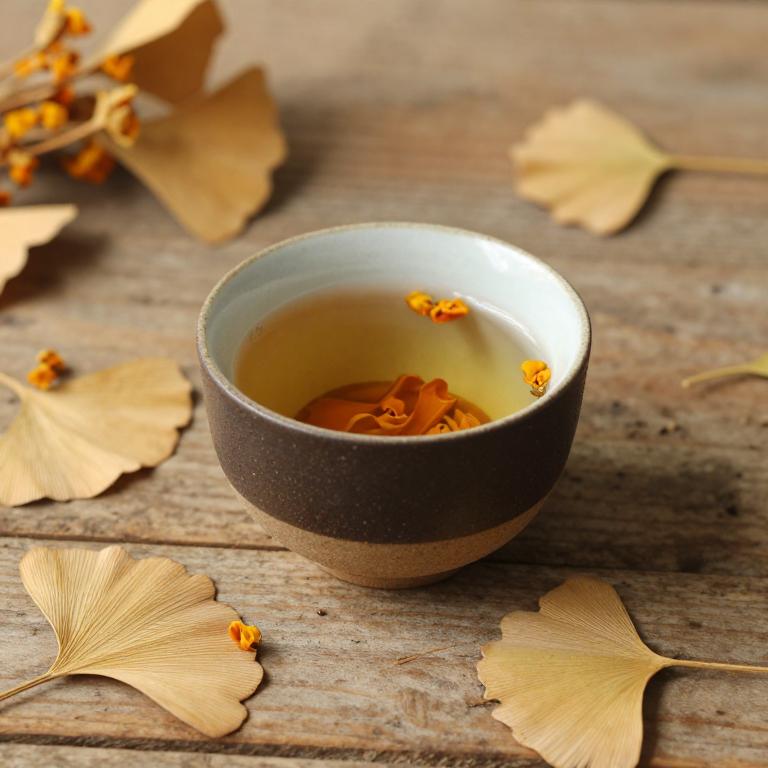
Herbal teas have gained attention for their potential role in supporting cardiovascular health, particularly in the context of arteriosclerosis, a condition characterized by the hardening and narrowing of arteries.
Certain herbs, such as hibiscus, ginger, and green tea, are believed to contain bioactive compounds that may help reduce inflammation, lower blood pressure, and improve blood flow. These natural remedies are often considered safe alternatives or complements to conventional treatments, though their efficacy can vary based on the specific herb and individual health conditions. While some studies suggest that regular consumption of certain herbal teas may contribute to arterial health, more research is needed to fully understand their impact.
As with any supplement, it is advisable to consult a healthcare professional before incorporating herbal teas into a treatment plan for arteriosclerosis.
Table of Contents
- 1. Ginkgo (Ginkgo biloba)
- 2. Salvia (Salvia officinalis)
- 3. Common grape (Vitis vinifera)
- 4. Garlic (Allium sativum)
- 5. Turmeric (Curcuma longa)
- 6. Stinging nettle (Urtica dioica)
- 7. Thistle (Silybum marianum)
- 8. St. john's wort (Hypericum perforatum)
- 9. Panax ginseng (Panax ginseng)
- 10. Ceylon cinnamon (Cinnamomum verum)
1. Ginkgo (Ginkgo biloba)

Ginkgo biloba herbal tea, derived from the leaves of the ancient ginkgo tree, has been traditionally used for its potential cardiovascular benefits.
Some studies suggest that the active compounds in ginkgo biloba, such as flavonoids and terpene lactones, may improve blood flow and reduce oxidative stress, which are factors in the development of arteriosclerosis. While preliminary research indicates that ginkgo biloba may support arterial health by preventing the buildup of plaque, more rigorous clinical trials are needed to confirm its efficacy. It is often used as a complementary therapy alongside conventional treatments for cardiovascular conditions.
However, individuals should consult with a healthcare provider before using ginkgo biloba, as it may interact with certain medications and is not a substitute for medical treatment.
2. Salvia (Salvia officinalis)

Salvia officinalis, commonly known as sage, has been traditionally used in herbal medicine for its potential cardiovascular benefits.
Recent studies suggest that sage tea may help reduce oxidative stress and inflammation, which are key contributors to arteriosclerosis. The plant contains compounds like rosmarinic acid and flavonoids that may support arterial health by improving blood flow and reducing plaque buildup. While more research is needed, some preliminary evidence indicates that regular consumption of sage tea could be a complementary approach in managing arteriosclerosis.
However, it is important to consult with a healthcare professional before using sage tea as part of a treatment plan for cardiovascular conditions.
3. Common grape (Vitis vinifera)
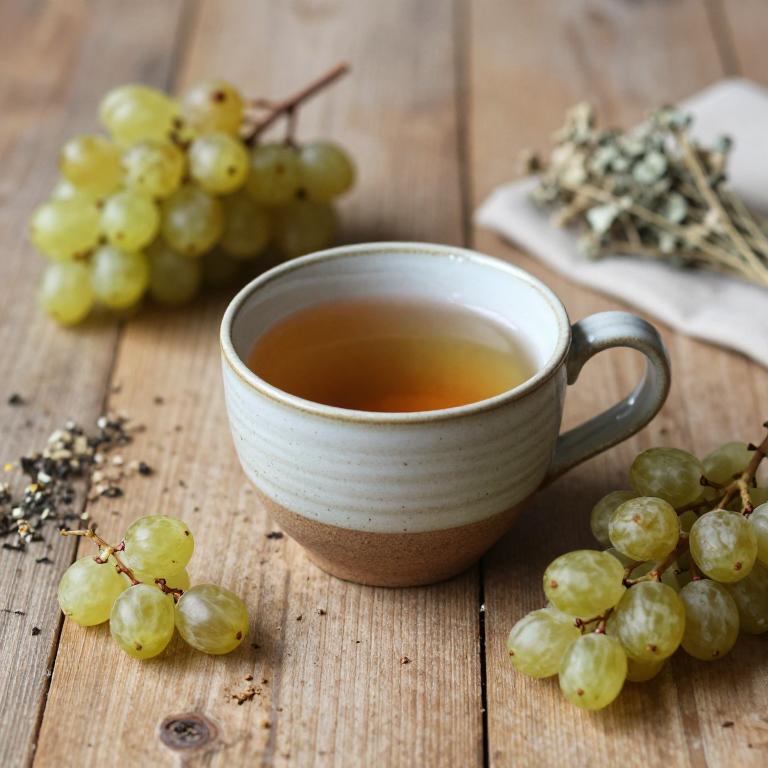
Vitis vinifera, commonly known as the common grapevine, has been traditionally used in herbal medicine for its potential cardiovascular benefits.
Herbal teas made from Vitis vinifera, particularly those containing resveratrol, are believed to support heart health by reducing oxidative stress and inflammation. These teas may help in managing arteriosclerosis by improving endothelial function and reducing plaque buildup in arteries. Studies suggest that the antioxidants in Vitis vinifera can enhance blood flow and lower blood pressure, which are critical factors in preventing arterial damage.
However, while these teas show promise, they should be used as part of a comprehensive approach to cardiovascular health, under the guidance of a healthcare professional.
4. Garlic (Allium sativum)
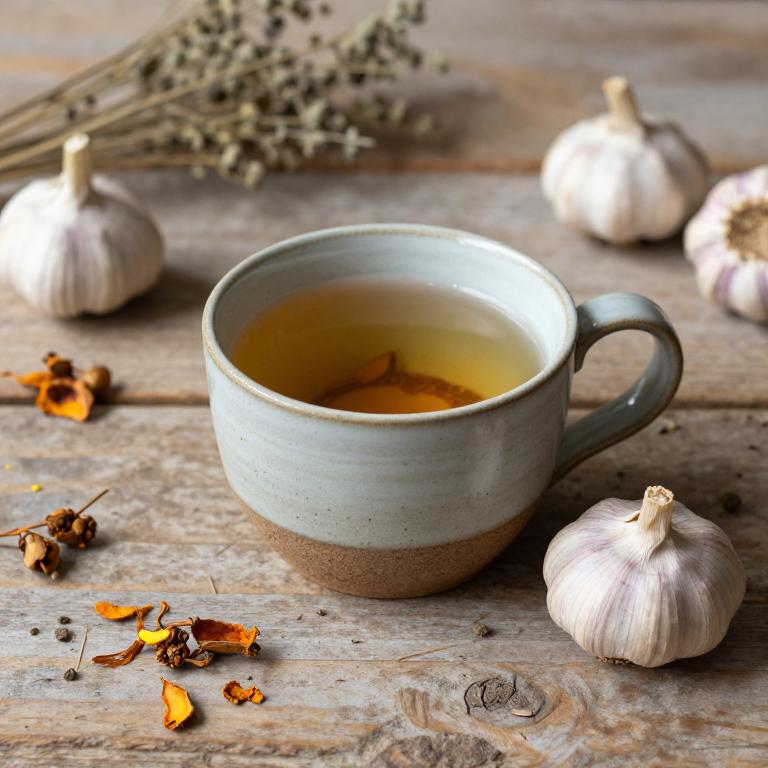
Allium sativum, commonly known as garlic, has been widely studied for its potential cardiovascular benefits, including its role in managing arteriosclerosis.
Herbal teas made from garlic contain compounds like allicin, which have demonstrated antioxidant and anti-inflammatory properties that may help reduce arterial plaque buildup. Regular consumption of garlic tea may support the regulation of blood pressure and cholesterol levels, both of which are critical factors in preventing the progression of arteriosclerosis. However, while some preliminary research suggests these benefits, more clinical trials are needed to confirm the efficacy and safety of garlic tea as a therapeutic intervention for this condition.
As with any herbal remedy, it is advisable to consult a healthcare professional before incorporating garlic tea into a treatment plan for arteriosclerosis.
5. Turmeric (Curcuma longa)

Curcuma longa, commonly known as turmeric, contains a bioactive compound called curcumin, which has been extensively studied for its potential health benefits, including its anti-inflammatory and antioxidant properties.
Research suggests that curcumin may help reduce oxidative stress and inflammation, both of which are key contributors to the development of arteriosclerosis. While herbal teas made from curcuma longa are generally considered safe, they are not a substitute for prescribed medical treatments, and their effectiveness in preventing or reversing arteriosclerosis requires further clinical validation. Some studies indicate that curcumin supplementation may improve endothelial function and reduce arterial stiffness, which are early markers of vascular disease.
However, the bioavailability of curcumin is low, and it is often combined with black pepper or other substances to enhance absorption when used in therapeutic doses.
6. Stinging nettle (Urtica dioica)

Urtica dioica, commonly known as stinging nettle, has been explored for its potential health benefits, including its role in supporting cardiovascular health.
Some studies suggest that the bioactive compounds in stinging nettle, such as flavonoids and polyphenols, may help reduce oxidative stress and inflammation, which are key factors in the development of arteriosclerosis. While there is limited clinical evidence specifically linking urtica dioica herbal teas to the prevention or treatment of arteriosclerosis, some preliminary research indicates that its high antioxidant content could contribute to vascular health. As a result, some individuals may use stinging nettle tea as a complementary therapy under the guidance of a healthcare professional.
However, it is important to note that more rigorous scientific studies are needed to confirm its efficacy and safety for this specific condition.
7. Thistle (Silybum marianum)

Silybum marianum, commonly known as milk thistle, is a herbal remedy that has been traditionally used for its potential health benefits, particularly in supporting liver function.
Recent studies suggest that the active compound silymarin in milk thistle may have antioxidant and anti-inflammatory properties that could help reduce oxidative stress, a key contributor to arteriosclerosis. While preliminary research indicates that silybum marianum may help in managing cholesterol levels and improving vascular health, more clinical trials are needed to confirm its efficacy in treating arteriosclerosis. When considering herbal teas for this condition, it is important to consult with a healthcare provider to ensure they are safe and appropriate for individual health needs.
As a complementary therapy, milk thistle tea may support overall cardiovascular health but should not replace conventional medical treatments.
8. St. john's wort (Hypericum perforatum)

Hypericum perforatum, commonly known as St. John's Wort, is a herbal remedy traditionally used for its potential cardiovascular benefits.
Some studies suggest that compounds in St. John's Wort, such as hypericin and flavonoids, may help reduce oxidative stress and inflammation, which are key factors in the development of arteriosclerosis. While preliminary research indicates that it might support arterial health by improving blood flow and reducing plaque formation, more clinical trials are needed to confirm its efficacy and safety in treating this condition. Herbal teas made from St. John's Wort are often consumed for their mild antidepressant and anti-inflammatory properties, though they should be used with caution due to potential interactions with medications.
As with any herbal remedy, it is advisable to consult a healthcare professional before incorporating St. John's Wort into a treatment plan for arteriosclerosis.
9. Panax ginseng (Panax ginseng)
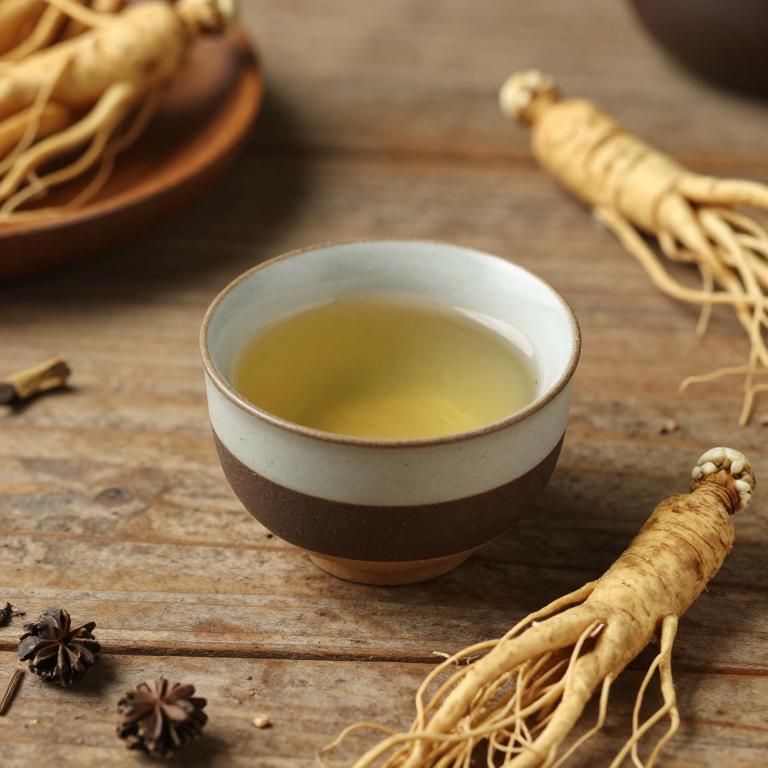
Panax ginseng, a well-known adaptogenic herb, has been studied for its potential benefits in supporting cardiovascular health, particularly in relation to arteriosclerosis.
Research suggests that the bioactive compounds in Panax ginseng, such as ginsenosides, may help reduce oxidative stress and inflammation, both of which are key contributors to the development of arteriosclerosis. When consumed as an herbal tea, Panax ginseng may aid in improving blood flow and regulating blood pressure, potentially slowing the progression of arterial plaque buildup. However, while preliminary studies show promise, more clinical research is needed to fully understand its efficacy and safety in this context.
As with any herbal supplement, it is advisable to consult a healthcare professional before incorporating Panax ginseng tea into a treatment plan for arteriosclerosis.
10. Ceylon cinnamon (Cinnamomum verum)
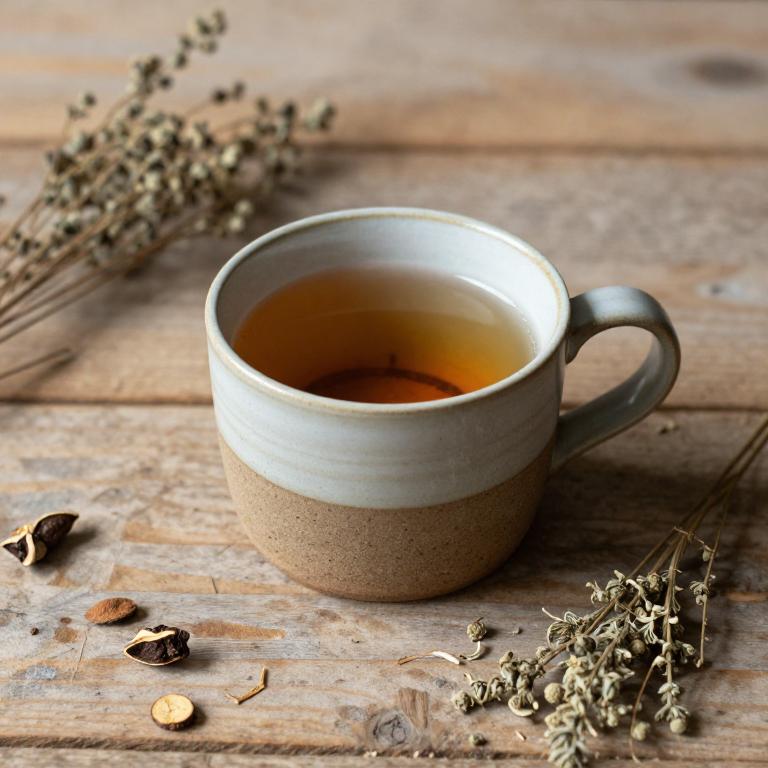
Cinnamomum verum, commonly known as true cinnamon, has been traditionally used in herbal teas for its potential cardiovascular benefits.
Research suggests that the essential oils and polyphenols in cinnamon may help reduce inflammation and oxidative stress, both of which are linked to the development of arteriosclerosis. Regular consumption of cinnamon tea may support healthy blood lipid levels, potentially lowering the risk of arterial plaque buildup. However, while some studies show promising results, more clinical trials are needed to confirm its efficacy in preventing or treating arteriosclerosis.
As with any herbal remedy, it is advisable to consult a healthcare professional before incorporating cinnamon tea into a treatment regimen for cardiovascular conditions.